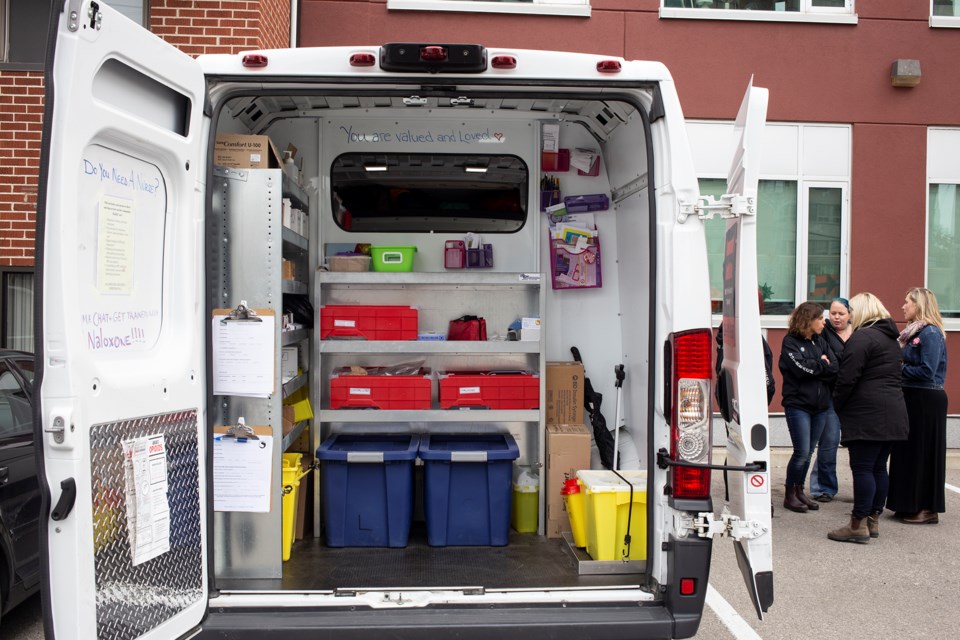WELLINGTON ‒ The Guelph Wellington Community Health Van has five months to find $270,000 if it's to continue in 2024.
Delegating to the county's social services committee, the group that operates the service said it were informed in January that its three-year Health Canada Substance Use and Addictions grant would not be extended and that they should seek alternate options, of which they've been unsuccessful.
The van is run by Sanguen Outreach Programs and staffed by a number of different outreach groups.
Covering $270,000 per year, the group said the Health Canada grant currently makes up 80 per cent of funding, with the remaining 20 per cent coming from Guelph and smaller grants. It's fiscal year ends at the end of March.
"Relying on grants is difficult...most can't provide enough funding to support the program," said Lindsay Sprague, one of four representing the group. "We're going to have a problem if we don't get funding by March."
Advocating for harm reduction across Guelph and Wellington, the van currently visits each of its serviced municipalities every Tuesday and Wednesday on a bi-weekly basis, making two stops a day for two hours each, before returning to Guelph, where it provides off-duty service from 5 p.m. to 9 p.m.
These services range from offering things like medical assessments, emergency contraception, naloxone kits, clothing, and supportive counselling to locations where people are camping or temporarily residing, and rural areas where services can be sparse.
"Needs are going up," said Luisa Artuso, social services administrator. "2023 has really opened our eyes to a new state of community which is very different from what we've seen even during the pandemic."
According to the van's team lead, Cory Gillies, the community health van performed 4,302 interventions from July to September, almost doubling its 2021 numbers during the same period.
Of the interactions recorded, Gillies estimates service is currently split 60/40 between Guelph and Wellington County.
Voicing the general opinion in the room, County Coun. Jeff Duncan, who attended the meeting, advocated for immediate funding.
"You're the frontline of the frontline," said Duncan, addressing the group. "The cost for us to prevent someone from needing serious help is priceless."
But Guelph councillor Linda Busuttil, who attended the meeting, felt the group's request was "just a stop-gap."
"My concern is this is a bandaid," said Busuttil, asking for more information and a detailed sustainability plan. "I don't see the sustainability beyond 2024."
County Coun. Gregg Davidson, Mapleton's mayor, also expressed concern that Mapleton and Puslinch are not serviced by the van, advocating for equitable services county-wide.
Currently, the community van has stops in Rockwood, Erin, Palmerston, Harriston, Fergus, Arthur, Mount Forest, and Guelph but does not serve Mapleton or Puslinch, which Gillies said "boils down to staffing."
As the group works towards the continuation and sustainability of the van, the plan is to eventually expand to all municipalities, as well as broaden its reach to Orangeville and Grey/Bruce.
"There's a lot of invisible homelessness and addiction in rural Wellington County," said Gillies. "And until people know that these services exist, they're not going to know to connect."
The committee moved to get a full report and make concrete funding decisions at its November meeting.
Isabel Buckmaster is the Local Journalism Initiative reporter for GuelphToday. LJI is a federally-funded program.


.png;w=120;h=80;mode=crop)
